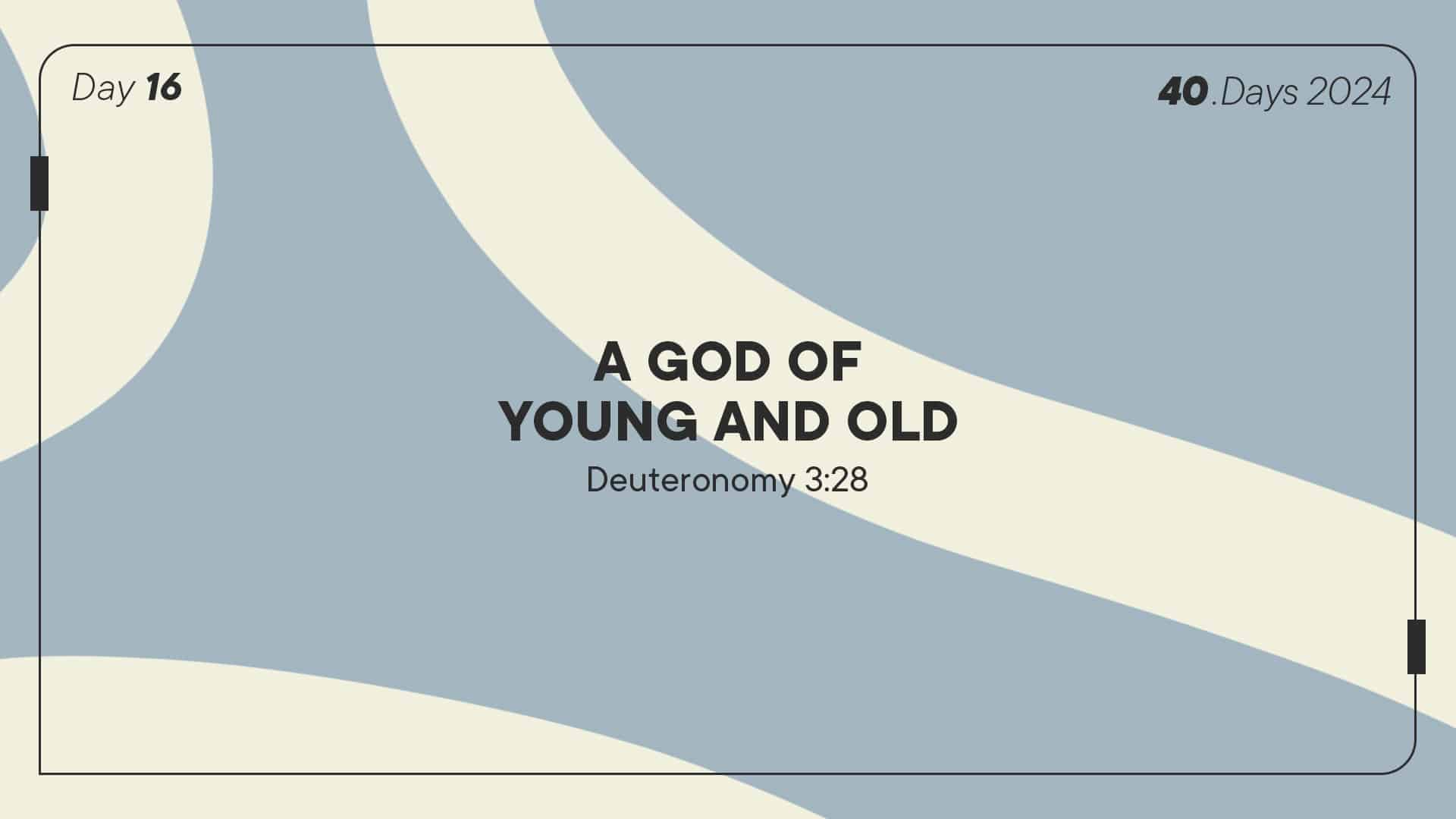
How Jesus responded to John the Baptist when he doubted (Matthew 11:2-11) gives us an indication of what God thinks about honest doubt, says Dr Mike Licona. Photo by Tim Marshall on Unsplash.
The worldview I choose is the most important decision I will ever make.
If I make a bad mistake, I could pay for eternity.
So I looked at the evidence of the resurrection. I looked at it a second time, and a third time, and a thousandth time.
My doctoral dissertation was on the resurrection and it ended up being over 500 pages, single spaced, with more than 2,000 footnotes.
I was just obsessed with looking at the evidence. This is my eternity we’re talking about.
I wanted to know the truth because I wanted to follow the truth.
My greatest fear was that my bias would get in the way and prevent me from discovering truth and cost me eternity.
But I still experience doubts occasionally. And it’s not because of the evidence.
The problem of the what if
On some stages on which I speak, the stage crew will tell me beforehand: “You see these little pieces of tape on the stage? That’s where the lighting is. We don’t want you to go past this tape. That tape there, we don’t want you to go on the other side of it, because you’ll be outside the light. You’ve got to stay within where those tape markers are.”
No problem! There’s plenty of room. I could walk to the left, I could walk backwards, I could even jog backwards. I could blindfold myself and still stay within that space.

Mike Licona speaking at the Reasonable Faith Conference 2019. Photo courtesy of Reasonable Faith Singapore.
But let’s say you took that same kind of space, maybe 8 feet this way and extended it as long as you wanted, and made a plank with that, and then took that plank and suspended it between two skyscrapers, a thousand feet above the ground.
And then you say: “Mike, I want you to walk across that.”
When I think about eternity, the consequences of getting it wrong calls me to doubt in spite of the evidence.
Now I know I could do it. I could do it without even looking. But I am not going across that board.
Because of the what if.
What if a gust of wind blows? What if I stumble? The consequences are so terrible that it causes me to doubt.
And when I think about eternity, the consequences of getting it wrong, calls me to doubt no matter how much I’ve looked at the evidence.
But notice our doubts are not due to any lack of evidence? They’re emotional.
So how do we deal with emotional doubt?
If you have intellectual doubt, that’s easy to overcome. You share evidence, look at apologetics and the scientific proof for a creator of the universe and life. That can solve intellectual doubt. But how do we deal with emotional doubt?
I want to give you four key actions for surviving emotional doubt:
1. Recognise that doubting is normal
Let me give you two stories about Abraham.
In Genesis 12:7-20, God promises Abraham that he’s going to make a nation out of him. Abraham and Sarai don’t have any children at this point. And so God’s promise cannot be fulfilled.
Abraham goes to Egypt, and he has this worry that they’re going to kill him and take Sarai. Why wouldn’t he say: “But the Lord has promised us that he’s going to make a nation. He’s not going to allow it to happen.”
Instead he lies, and he tells Sarai to lie and say she is his sister. And the Lord has to rescue them.
You would think that Abraham would have learned through this, right?
He doesn’t – read eight chapters later: Genesis 20:1-14.
So God had to rescue Abraham twice, because Abraham did not trust the word that God had given to him. He doubted.
We see that Abraham heard God’s voice; he acted in faith on occasions, he doubted God on occasions. But he grew in his faith.
So we see that a hero of the Bible – one who makes the Faith Hall of Fame in Hebrews 11:8-12 – also had doubts.
Jesus doesn’t rebuke John the baptist for his doubts. He gives him evidence and encouragement (Matthew 11:7-11).
My favourite example, though, is John the Baptist in Matthew 11:2-11.
He’s in prison and he’s going to be executed. But he had doubts about Jesus.
He knew the story of Jesus’ phenomenal birth from Elizabeth, his mother. He baptised Jesus, he heard the voice from heaven, he saw the Holy Spirit descend on Jesus. He’s Jesus’ wingman. Yet he’s doubting.
And how does Jesus respond in Matthew 11:4-6?
He doesn’t rebuke John. He gives him evidence, he encourages him and, when John’s disciples leave, Jesus compliments John to the crowd (Matthew 11:7-11).
And he’s saying this while John the Baptist is having doubts.
That gives us a pretty good idea of what God thinks about doubt – honest doubt.
2. Recognise there is good evidence for the truth of Christianity
These are just four main evidences* we can give for the truth of Christianity:
- Evidence for a First Cause
- Evidence for a Designer
- Evidence for a Supreme Lawgiver
- Evidence for Jesus’s resurrection
3. Recognise that absolute certainty is an unreasonable expectation
Let me ask you a question: How old are you?
What is your answer based on – your birth certificate? Those things can be misprinted, right? Photos? Are they dated to the date of your birth? What else are you basing your age on? Memories? Memories can be corrupted right?
Is it probable that Christianity is true? We can say: Absolutely.
It’s reasonable to believe that you are a certain age, but would you bet your eternal soul on it? I wouldn’t.
So if we can’t have absolute certainty about something as simple as that, do you think we’re going to have absolute certainty that Jesus rose from the dead? Or that God exists? Or that Christianity is true?
This isn’t something that’s just unique to Christians.
Nobody is justified in having a 100% certainty. So absolute certainty is an unreasonable expectation.
All we can hope for is to look for the highest type of probability that we can obtain.
Is it probable that Christianity is true? We can say: Absolutely.
4. Recognise that faith is more than a feeling or an absence of doubt. It’s a commitment
If you live in a country where you can not only be persecuted for your faith but thrown into prison and tortured and executed, it will be like it was in ancient Rome and the guards show up at your door and they say: “We’ve heard you’re a Christian. Are you? You either deny Christ or we take you right now, and you die a nasty death.”
You don’t have to have a 100% certainty, but you have to have enough faith to act upon it.
What do you do?
That’s going to be tough, isn’t it? You want to have some assurance at that point that, if you’re saying “I’m a Christian”, you know Christianity is true.
But it doesn’t mean that when the guards show up on your door and ask you if you’re a Christian, you’re not going to have doubts.
Faith is not the absence of doubts. It’s a commitment that would say: “Yes I’m a Christian.” And you act on that.
If I’m in a hotel room, and a beautiful girl shows up at night when I did not call for her, even if I’m having some doubts about the Christian faith at that point, I live the Christian faith and I say: “No, I’m not interested.”
In Mark 9:23-24, the father says: “Lord I believe, help my unbelief.”
You don’t have to have a 100% certainty, but you have enough faith to act upon it.
That’s what faith is. It’s a commitment to follow Jesus.
This article was adapted from Mike Licona’s talk, “Does God get mad at me when I doubt?”, at the Reasonable Faith Conference 2019, held in the Church of Singapore (Marine Parade) on March 15-16, and organised by Reasonable Faith Singapore.
* You can find more debates, lectures and resources on apologetics here. For scientific evidence of a transcendent God, as explained by Dr Hugh Ross, click here.
Salt&Light readers receive a 20% discount with the coupon code “RFS19” when you purchase the following books from Cru Singapore’s online store. Valid until end May 2019, while stocks last.
Doubter’s Guide to the Bible
Doubter’s Guide to Jesus
Doubter’s Guide to the Ten Commandments
Hard Questions, Real Answers
Is God a Moral Monster? Making sense of the Old Testament God
Cru Singapore is offering Salt&Light readers 15% off all other books online, for a limited time only, with the coupon code “READ15”.
We are an independent, non-profit organisation that relies on the generosity of our readers, such as yourself, to continue serving the kingdom. Every dollar donated goes directly back into our editorial coverage.
Would you consider partnering with us in our kingdom work by supporting us financially, either as a one-off donation, or a recurring pledge?
Support Salt&Light


